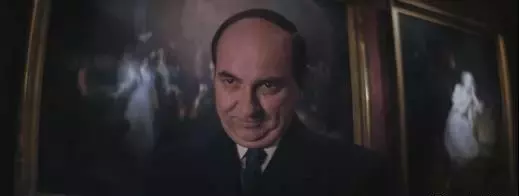The poet and his poems are the mirrors of his time, the times are complex, and the mirrors are as deep as black holes. Many people like to read poetry, and can't help but explore the footsteps of poets and fantasize about the appearance of poets. But bringing the poet's story to the screen is a difficult task. Because the meaning of the poet's existence lies in his rich heart, and all the lens can present is the skin.
The director of The Hunt for Neruda was clever, and instead of telling the poet's story in the usual narrative means, he adopted an almost prose poetry format. The film does not follow the logic of film narrative in the usual sense, but the logic of poetry, which makes the film like a prose poem, and it is a little uncomfortable to watch for the first time, however, after careful chewing, the aftertaste is endless.

In 1945, Neruda was elected to Congress, and a year later, the Communist Party was made an outlaw organization by the Chilean government, and he had to start fleeing. The main line of the film is this process of escape.
The film begins with a surreal scene in which Neruda and the lawmakers meet in the bathroom, discussing politics while unwinding their hands. Neruda, who appears at the beginning of the film, is a dead fat man, coveting pleasure, lust, and cynicism, however, as the film progresses, the poetry gradually appears.
On his way to escape, Neruda recites "I can write the saddest verse tonight" for a folk singer and calls the other person "the artist", and when the police arrive, the folk singer tells the police in a trembling voice about Neruda's respect for himself, at which point we begin to understand some of the poetry hidden under Neruda's seemingly vulgar appearance.
This poetry is not the poetry of the old aristocratic style. Whether it was Goethe or Tagore, or Byron, Pushkin, or the classical Chinese poets they used, no matter what position they stood on, they were essentially aristocrats. Unlike Neruda, he was a Communist, a Communist who presented himself as the leader of the proletariat. However, Neruda's status as a member of parliament made him by no means at the bottom. Thus, the act of "fleeing" has a religious significance, and in this escape ceremony, he is hunted down and killed by the government that symbolizes despotism, goes to the people, and realizes his transcendence - although this is still an act of show, but the act of this show shows the tide of the times. So, what is true and what is false?
Similarly, the police who hunted down Neruda faced a similar situation to Neruda, on the one hand, he was the eagle dog of the government, and on the other hand, he fantasized that he was the son of a prostitute. Through the ritual of "hunting down", he became the son of Neruda, the son of the people.
In the film, the most interesting thing is the relationship between the police and Neruda. There are many ways to interpret this. There are so many things that Grandpa Belle can think of.
The first is that Neruda was a figment of the imagination of the police. The police symbolized a part of the people of that era who, under political pressure, wanted a breath of fresh air, and Neruda fulfilled this illusion.
The second is that the policeman is a character in Neruda's novel. This is shown in the film. Neruda's feelings about his "not belonging to the bottom" and his "leaning toward the bottom" are presented with the hesitation of the police, and in the end, the police die in the vast snow, and Neruda crosses the Andes and achieves transcendence.
The third is that the policeman is a reader of Neruda. The reader follows in Neruda's footsteps, is attracted to him, and the hunt is to read, to enter the heart of the poet, and finally to be conquered by the poet's soul.
As for which interpretation is correct, Belle feels that all interpretations are OK, and multiple interpretations are the characteristics of this film. True and false when fake is true, true and true when false, true and false, false and true, constitute this "Hunting for Neruda".
Massive amount of rich handsome / funny God reply
Strange God Shot/Sharp God Spit
All in Belle has material